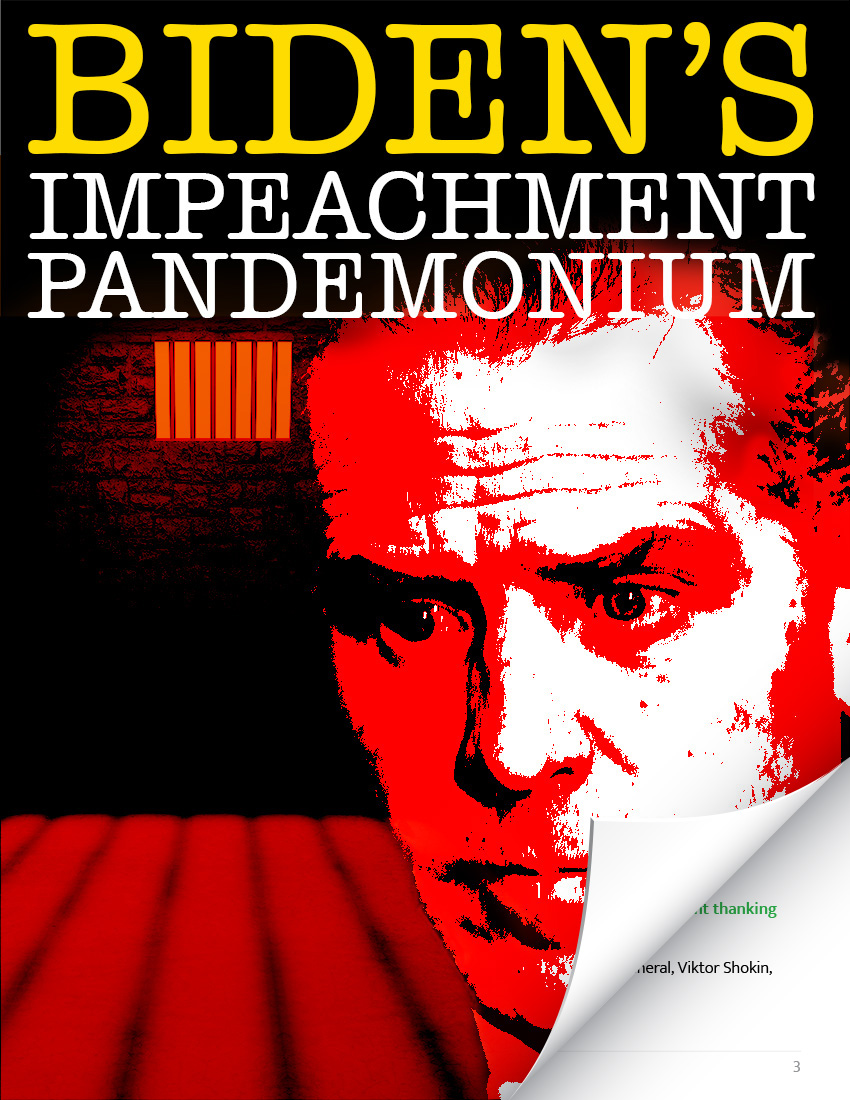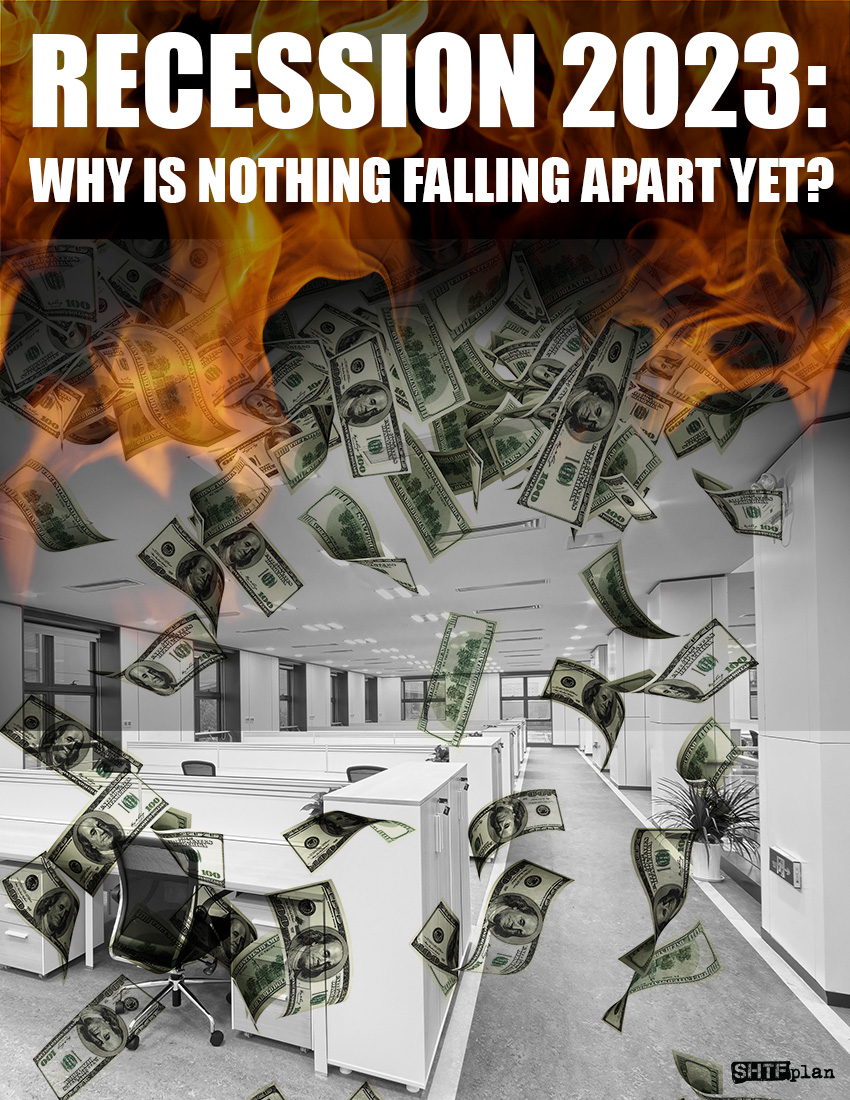
TRUMP SAYS: HUNTER MAKES FORTUNE FROM SHADY DEALS!
BIDEN FAMILY STINKS TO HIGH HEAVENS OF CORRUPTION!
DON'T GET LEFT OUT: HUNTER MUST BE STOPPED!

This article was originally published by Wanjiru Njoya at The Mises Institute.
Many people were shocked when over 1,000 protesters were arrested in the UK and jailed for various offenses including “violent disorder” and stirring up racial hatred. Most shocking were the cases of those arrested for posting social media comments on the riots, despite not being present at the scene and there being no evidence that anybody who joined in the riots had read any of their comments.
In societies that uphold the value of individual liberty, the only purpose of criminal law should be to restrain and punish those who commit acts of aggression against other people or their property. The criminal law should not be used to prevent people from “hating” others or to force them to “love” each other. In announcing yet another raft of laws “to expand the list of charges eligible to be prosecuted as hate crimes,” New York Governor Kathy Hochul said “During these challenging times, we will continue to show up for each other. We are making it clear: love will always have the last word in New York.” To that end, she introduced “legislation to significantly expand eligibility for hate crime prosecution.”
Attempts to promote love between different racial or religious groups in society, for example, by charging people with stirring up “hate” when they protest against immigration, misunderstand the role of the criminal law. Threats to public order entail violating the person or property of others—as happens in a violent riot—not merely the exhibition of “hate” towards others. Yet increasingly, public order offenses are linked to hate speech or hate crimes.
Laws prohibiting hate speech and hate crimes typically define “hate” as hostility based on race, sex, gender, sexual orientation, or religion. Often, hostility is understood simply as words that offend others. For example, in the UK, the Communications Act 2003 prohibits sending “a message or other matter that is grossly offensive or of an indecent, obscene or menacing character.” The Online Safety Act 2023 targets illegal content online including both “inciting violence” and the publication of “racially or religiously aggravated public order offenses.” Conduct online including writing posts or publishing blogs or articles on websites.
Given that inciting violence is already a crime—“conduct, words, or other means that urge or naturally lead others to riot, violence, or insurrection”—there seems to be no discernible purpose in adding the concept of “hate” to such crimes. To give an example, writing “burn down the store” on social media might be seen as inciting violence, but writing “burn down the Muslim store” in the same circumstances would be categorized as a hate crime. Arson (actually burning down the store) is a crime, but based on the racial or religious identity of the store owner arson is deemed to be a “worse” crime—a hate crime—even though the harm in both cases and the loss suffered by store owners who are victims of arson does not vary based purely on their race or religion.
Therefore, no “hateful conduct” laws are needed to further “criminalize” what is already a crime. The conclusion is inescapable that the only goal of these types of “hate” laws is to create a special category of crime based entirely on the identity of the victim. Identity politics is now part of criminal law. “Hate” based on race or religion is now a priority in criminal law enforcement with resources increasingly diverted towards it. For example, New York has devoted a budget of $60 million to “fight hate.”
Events in the UK over the past week chillingly illustrate the consequences of an identity-based approach to law enforcement. In the ongoing police purge of rioters, those who wrote “hate speech” posts on social media platforms were charged with “inciting racial hatred” and sentenced to prison terms of up to two to three years. Far from fighting against “hate,” this is likely only to further fuel resentment and racial antagonism.
The U.S. has so far avoided going down this socially destructive path, like the UK has, owing to the First Amendment of the U.S. Constitution. The importance of the first amendment in thwarting attempts to outlaw “hate speech” can be seen in New York’s Assembly Bill A7865A (2021-2022), which provides that humiliating or vilifying anyone on social media based on their identity is hateful conduct and, therefore, illegal. The bill requires social media networks to report “hateful conduct on their platform,” and defines hateful conduct as “the use of a social media network to vilify, humiliate, or incite violence against a group or a class of persons on the basis of race, color, religion, ethnicity, national origin, disability, sex, sexual orientation, gender identity or gender expression.” This attempt to regulate “hateful conduct” is a clear restriction of free speech, and it was predictably opposed by free speech groups on grounds that it violates the first amendment.
In linking criminal law to the protection of property rights, Murray Rothbard argues that “incitement” is an element of free speech. Under the principle of free will, no one should claim that the reason he committed arson (a crime against the property of another) was that he read a post on social media saying “burn down the store.” The arsonist would be responsible for his own crime. He may have read the post but the choice to go out and commit the crime was his own. Rothbard explains:
Should it be illegal, we may next inquire, to “incite to riot”’? Suppose that Green exhorts a crowd: “Go! Burn! Loot! Kill!” and the mob proceeds to do just that, with Green having nothing further to do with these criminal activities. Since every man is free to adopt or not adopt any course of action he wishes, we cannot say that in some way Green determined the members of the mob to their criminal activities; we cannot make him, because of his exhortation, at all responsible for their crimes. “Inciting to riot,” therefore, is a pure exercise of a man’s right to speak without being thereby implicated in crime.
Rothbard adds that much would, of course, depend on the context: “there is a world of difference between the head of a criminal gang and a soap-box orator during a riot.” One of the British people in jail for social media posts wrote on Facebook that “Every man and his dog should smash the f—k out of Britannia hotel,” which was a hotel well known for housing immigrants. The writer of the post—a 28-year-old with no notable following—was not himself present at the riots, nor was there any reason to think those present at the riots had read his post or intended to follow his exhortation. In that sense, he seems to have been nothing more than a “soap-box orator” offering commentary on the riots from the safety and comfort of his armchair. Yet he was charged with “threatening, abusive or insulting words or behavior intending thereby to stir up racial hatred” and jailed for 20 months. That social media commentary is now treated in this way as a reason to jail people for “racial hatred” represents a grave threat to individual liberty, and illustrates the folly of criminalizing “hate.”

It Took 22 Years to Get to This Point
Most of us have heard of germ theory ad nauseam since the beginning of the COVID-19 scamdemic....
This article was originally published by Rhoda Wilson at The Exposé. The Pandermrix influenza...
This article was originally published by S.D. Wells at Natural News under the title:...
The United Kingdom's rulers created an online censorship law that has now advanced to the point...
Commenting Policy:
Some comments on this web site are automatically moderated through our Spam protection systems. Please be patient if your comment isn’t immediately available. We’re not trying to censor you, the system just wants to make sure you’re not a robot posting random spam.
This website thrives because of its community. While we support lively debates and understand that people get excited, frustrated or angry at times, we ask that the conversation remain civil. Racism, to include any religious affiliation, will not be tolerated on this site, including the disparagement of people in the comments section.


Comments